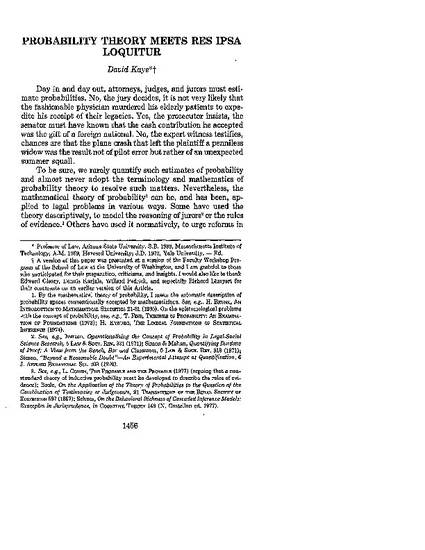
- Legal History and
- Torts
Day in and day out, attorneys, judges, and jurors must estimate probabilities. To be sure, we rarely quantify such estimates of probability and almost never adopt the terminology and mathematics of probability theory to resolve matters. Nevertheless, the mathematical theory of probability can be applied to legal problems in various ways. This article uses probability theory normatively in an effort to clarify one aspect of the famous tort doctrine known as res ipsa loquitur. While not urging that jurors be instructed in probability theory or be equipped with microprocessors, it does seek an accurate statement of the res ipsa doctrine in ordinary language. In particular, it shows that the conventional formulation of the doctrine is misleading at best, and should be replaced with a more careful statement of the conditions warranting the res ipsa inference. It briefly surveys the aspect of the legal doctrine criticized, develops a mathematical apparatus and uses it to expose the weakness in the current version of res ipsa loquitur, and summarizes and elaborates on conclusions that suggest which cases should reach a jury and what instructions the jury should receive.
Available at: http://works.bepress.com/david-kaye/35/

This article was originally published at 77 Mich. L. Rev. 1456.